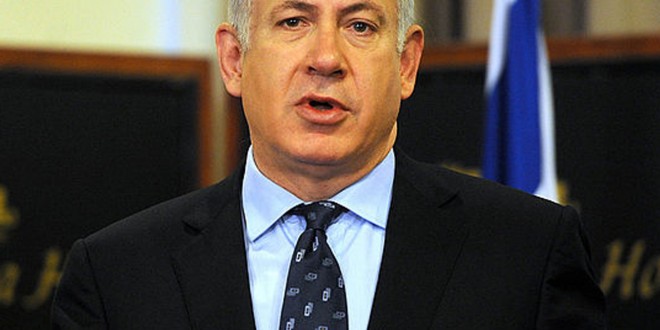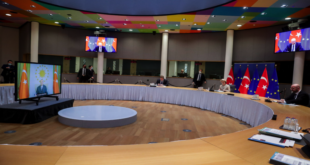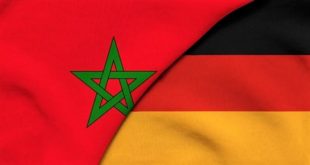The Israeli elections on March 17 should not have had a surprise result. Surveys and experts had been predicting the downfall of Netanyahu for several days. The outcome of the vote was, in fact, according to the latest polls and after a particularly aggressive and angry campaign, supposed to consolidate the position of the center-left Zionist camp, with the Herzog-Livni double act succeeding Benjamin Netanyahu. Intellectuals, politicians of all stripes abroad, even researchers: all were convinced of a coming political renewal at the head of the Jewish state. They believed in a return of the “left.” However, a number of specialists resisted the media bandwagon. We were proven correct. And the biggest surprise of the elections? The unusually high turnout of around 72%.
Predictions of the return of the “left” in Israel indicated a lack of understanding of Israel’s political landscape, recent history and electorate – and, crucially, of Netanyahu’s character. For fifteen years, the right and the extreme right have been in the ascendency, signaled by the increasing colonisation of territory and obsession with security in an uncertain regional context. Both developments are caused by and further stimulate the rise of the right, nationalism and religious Zionism.
The latter concern is arguably legitimate, since the region is undoubtedly worryingly unstable. However, although Sharon evolved towards the end of his political career from the hawkish posture he had held since the War of Independence, can we expect the same from Bibi? Do such expectations entail accepting the old adage that, if you want peace, you must prepare for war? It is of course unlikely that he will start to make concessions. The only time he did so, in 1999, he lost his job.
Moreover, those wishing for a return of the “left” should remember that, historically, the Israeli left is responsible for end of the Palestinian state on November 29, 1947, and the expulsion of Palestinians between 1947 and 1949 – with, of course, a helping hand from right-wing militias such as the Irgun and Stern Gang. Leftist parties also conducted the Six Day War and laid the ideological roots for the colonization of Palestinian territories in the name of security, long before the arrival and subsequent ascendency of the right in 1977. People should also not need reminding that the occupation of Palestinian territory has been uninterrupted for forty-seven year and, indeed, intensified under the 1999-2001 tenure of the Labour Party’s Ehud Barak.
Netanyahu’s headstrong and hardline approach to politics may be isolating Israel and destroying whatever possibility remained of an independent Palestinian state, but his departure from previous leaders – including those of the Israeli left – is one of style more than substance. And as long as he continues to offer a firmer and – at least rhetorically – more convincing position on Israel’s security, it is hard to see him being swept aside.
Netanyahu’s Likud: a symbol of national unity against the new Amalekites
There are degrees of radicalism in the various political parties of the right, nationalist, religious Zionist and Messianic Israeli movement. But Netanyahu’sLikud remains the largest party in government. Unlike others, such as Kadima, the right-wing party which eventually joined the left in 2006, Likud is the party most able to deliver unity among the right-wing sections of the electorate. Except in the elections of 1999 (19 seats) and 2006 (12 seats), Likud has rarely dropped below the twenty or thirty seats in the Knesset since 1973: 39 seats in 1973, 48 in 1981, 32 in 1996 (when Netanyahu became leader of the party and Prime Minister), 38 in 2003, 27 in 2009, 20 in 2013 and 30 in 2015.
Due to this relative consistency, Likud in its policy and rhetoric is a fundamental reference for Israeli voters. And their line never changes: security, security and security. In reality, this involves the colonization of Palestinian territories, the refusal of a Palestinian state, the waging of numerous preemptive wars which are devastating not only for Israel’s enemies, but for the country’s economy and, in turn, society. Likud constantly presents itself as defending Israel against a host of enemies, the star cast of which does not change, regardless of the situation: Iran, which nevertheless looks set to return to the international community of nations; Hezbollah; Hamas; and new kids on the block, Daesh (the Islamic State), labelled ‘the number one threat to the entire international community’. The enemies are presented as a modern incarnation of the Amalekites, the Biblical enemy of the Jewish tribes.
Since taking office, Netanyahu has rarely changed his true position on any key issues affecting Israelis. Nor, indeed, has he made any progress in solving the country’s economic and social crises, on defense issues, on the ‘existential’ struggle against enemies, or with regards to the Palestinian state. His consistency in this regard should not be clouded by his sometimes divergent statements. In his speech at Bar Ilan in 2009, Netanyahu supported the two-state solution. Today, he no longer even pays it lip service and argues strongly against Palestine’s unilateral campaigns the United Nations. Deep down, one suspects that this has always been his position. And this consistency wins Netanyahu and his party elections. As the prominent blogger Charles Enderlin argued, if elected, Netanyahu will simply continue to implement his long-standing project: to transform the essential spirit of Israel and end any possibility of a two-state solution.
The inconsistent and disorganised opposition
The list of the centre-left Zionist Union camp, headed by Isaac Herzog, son of former Israeli President Chaim Herzog, and Tzipi Livni, regular defector from right to left, nevertheless made more than respectable gains. But not enough to win victory. With 24 seats, the Zionist Union may be a newly established party, but the manner of its emergence will be familiar to Israelis: a coalition scrambled together purely in order to win an election.
This leads to great inconsistency among centrist and centre-left parties, exemplified by Yair Lapid’s Yesh Atid party. In the 2013 elections, the party emerged from nowhere to gain 19 seats, making it the second largest force in the Knesset, and joined the ruling coalition under Netanyahu. In the most recent elections, after refusing to repeat the partnership and signing up to the centre-left opposition, Yesh Atid fell to only 11 seats. Beyond the surprising gains of theUnited Arab List, to which we shall return, this to-ing and fro-ing means that the centre-left lacks credibility as a long-term alternative for the Israeli electorate.
This is exacerbated by the fact that the Israeli right blames the centre-left for believing in Oslo and the possibility of peace with the Palestinians after the failure of the Camp David II negotiations. When surveying the history of the Labour Partyover the last ten years, it is clear that the once-mighty force is now fragmented and dormant. Its former leaders, such as Barak, have shifted radically to the right and even founded their own party, Haatzmaut (Independence), which has since disappeared.
While short-lived, this move demonstrated that the ideology dominant at the time of Israel’s founding, that of the Labour Party, is no longer in vogue. The left has disappeared into a black hole. In 2013, the Labour Party won only 15 seats. While the center-left Yesh Atid clinched 19 seats, it scrambled to form an alliance with Naftali Bennet’s far-right Jewish Home, before joining the Netanyahu government.Labour won 13 seats in 2009, with Kadima shifting to the left-center and gaining 29 seats. In 2006, Labour won 19 seats, with Kadima (at this point, still on the right) clinching 29 seats. Likud, with 12 seats, appeared to have suffered a major blow. Of all the traditional left parties, it is Meretz which has remained most true to its ideals and consistent, still calling for a shared Jerusalem, two-state solution and dismantling of the settlements. As for the Unified Arabic List, it has – largely thanks to its leader, Ayman Odeh – won 14 seats, making it the third largest political party in the country. As already made clear during the elections, the Arab List will not ally with either Herzog or Netanyahou, but will rather taking a leading role in the Israeli opposition. It will be a strong symbol.
The only consistent policy comes from the right
The Israeli left has lost its identity, wears a black rose for the Palestinian’s simply to cover the indelible stain of its original sin, and has directly or indirectly contributed to the erosion of some of the great humanist principles of early Zionism: the New Man, the new country’s dreams, kibbutzim, an egalitarian society. They are not trusted to solve Israel’s most intractable problem, nor its present crises.
For all these reasons, the left tried to reconcile with its past and present itself in the recent elections as a “Zionist” union. However, Zionism has evolved since the left’s heyday. Supposedly “secular”, it has seen its nationalist and religious elements come into the ascendency. There is an unmistakable “theocratization” of Israel, whether in politics, in the army or in the population at large. This rise of religious discourse, of course, plays into the hands of Netanyahu and other right-wingers, especially its ultra-orthodox, “traditionalist” components: United Torah Judaism,Yisrael Beiteinu and Jewish Home.
The emergence of this “Bloc of Faith”, together with the ascendency of the right since 1977, has gradually merged the discourses of defense and security with religious messianism in the Palestinian territories. For increasing numbers of Israeli radicals who support these “fringe” parties of the extreme right, “Palestine” is simply understood as Judea and Samaria – and thus as Israel’s rightful territory. This discursive merger is extremely potent and dangerous.
However, the inconsistency of the Israeli “left” in its 2015 election program made it unlikely that it would be seen as a credible alternative. They have been pulled into the orbit of the right, making continued attempts to invoke their founding principles appear contradictory and unconvincing. They view Jerusalem as the indivisible capital of Israel, making ostensible commitment to a two-state solution appear hollow; they support the dismantling of the settlements – apart from the largest and most controversial, such as Ma’ale Adumim. They recognise Palestinians’ right to a state, but not on the basis of the 1967 borders of Green Line. These contradictions perhaps explain why even left-leaning Israelis end up consistently voting for the right: the left is dead and its attempts to deny this merely make it appear schizophrenic.
Any recovery of the left depends on whether it can offer the electorate a credible solution to Israel’s social and economic crises and, in so doing, push defense and security down the agenda. Indeed, since 2011 Israelis have repeatedly denounced Netanyahu’s record in the former area. Despite appointing a special commission in the aftermath of record-breaking public protests, the Prime Minister has been unable to resolve any economic problems. Indeed, his relentless focus on defense and security means that the state simply lacks the money to do so. The center-left has attempted to campaign on this issue, but ultimately, Israelis prefer invest hope in candidates who prioritise security.
Even on economic matters, the right still has the advantage. The rise of kingmakers like Moshe Kahlon, a Likud defector whose Kulanu (All of Us) party campaigned on socio-economic issues, allows Netanyahu to at least rhetorically reconcile the defense of the country with the defense of the standard of living for its citizens. By incorporating elements pushing a few traditionally centre-leftist policies, the ruling right-wing block is able to attract a broad enough voter base to remain secure. And, of course, any serious external attack or threat will see debate on socio-economic issues further suppressed in the name of “national unity”.
Netanyahu has a free hand to build a strong coalition of nearly 67 seats, sending Arab parties and Labour into opposition, and allying again with the most radical right-wing parties in the country: those who want Lieberman to initiate new wars against Gaza and Hezbollah; those who want to “save” Israel, such as Naftali Bennett, who takes an ultra-aggressive stance against all enemies of the country and shows zero remorse while pursuing the “natural” recolonization of Judea and Samaria; those who, like United Torah Judaism, want to reconquer the Dome of the Rock from the Muslims and repeal the law which will subject ultra-Orthodox Jews to mandatory conscription from 2017.
Meanwhile Israel will continue to “over-secure” itself, against Iran and other enemies, interfere with the fallout from the Arab Spring, risk further inflaming and already volatile situation in Syria and elsewhere and to support the status quo in less urgent questions for the Israeli electorate, in particular with regards to Palestine. Internationally, the Israeli government will continue to present threats to its own interests as threat to the entire world. Netanyahu recently stated once against that he has not changed his policies, but rather the political reality has changed. And indeed, Netanyahu mark-IV looks very much like the previous models. Is this a good this for Israel, or simply for the personal ambitions of the Prime Minister? Israel is more and more cut off from the international community, from European union, and, most importantly, from Barack Obama. It has not yet been abandoned by the United States. But for how long will it remain in favour?
 ForMENA Council for MENA affairs
ForMENA Council for MENA affairs




